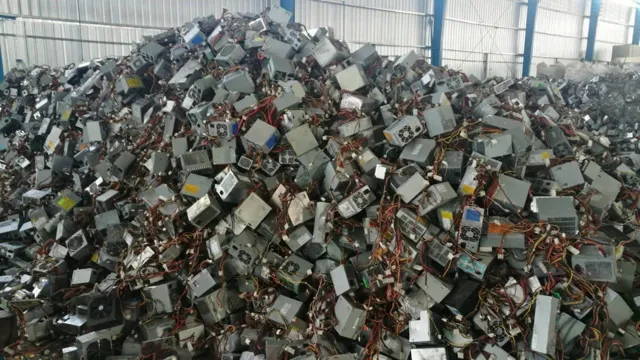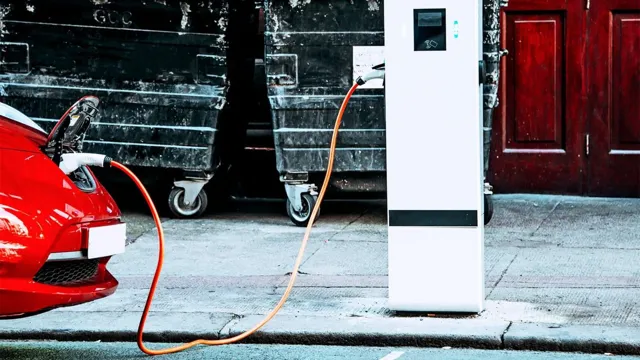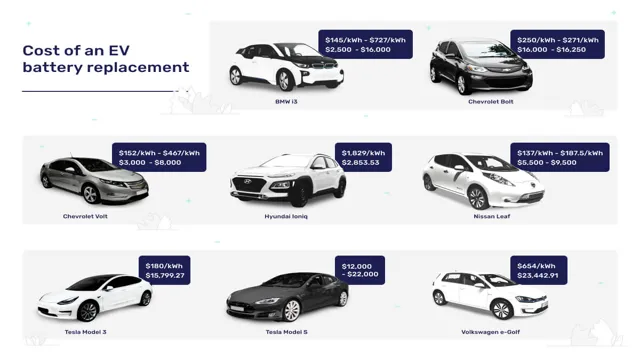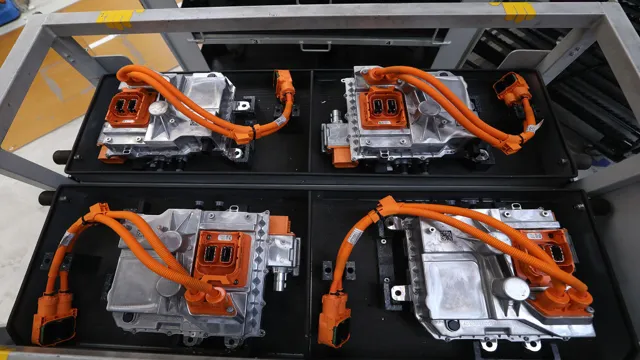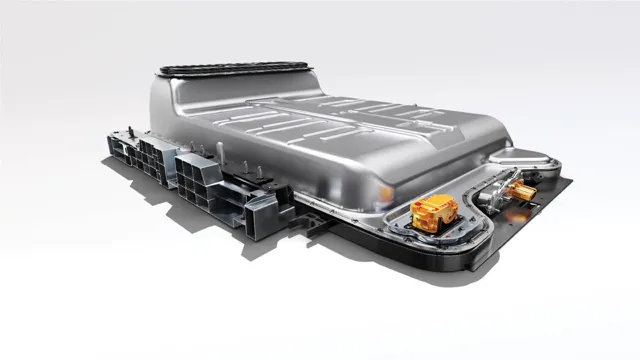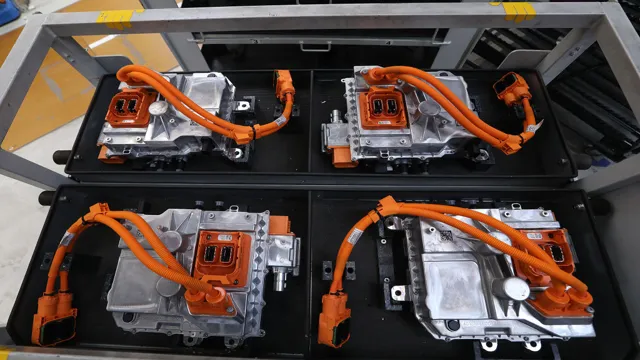Unveiling the Shocking Truth: The Environmental Impact of Disposing Electric Car Batteries
As the world shifts toward renewable energy and sustainable modes of transportation, electric cars have emerged as a promising solution for reducing the carbon footprint of the transportation sector. However, with the growing popularity of electric vehicles comes an environmental concern that is not often discussed – the disposal of their lithium-ion batteries. Electric car batteries contain toxic materials that pose a threat to the environment if not disposed of properly.
The environmental impact of electric car battery disposal is a complex issue that requires consideration from all parties involved in the life cycle of electric vehicles. In this blog, we will explore the impact of electric car battery disposal, the challenges faced in recycling them, and the steps being taken to mitigate their environmental impact.
Electric Car Battery Composition
When it comes to electric car battery disposal, there are concerns about the potential environmental impact. It’s important to note that electric car batteries are made up of different materials, including lithium, nickel, cobalt, and manganese. These materials are valuable and can be reused or recycled, but the current recycling processes are far from perfect.
In fact, recycling electric car batteries can still have negative consequences on the environment, particularly if the process isn’t done correctly. However, not recycling these batteries can also lead to negative environmental impacts as they contain hazardous substances that can leach out into the environment. So, in summary, while electric car battery disposal does have an environmental impact, it’s not as straightforward as simply saying that it’s bad.
The key is to ensure that the recycling process is handled correctly, and that we continue to invest in developing more sustainable and efficient ways to repurpose these batteries.
Composition Impact on Disposal
When it comes to disposing of electric car batteries, their composition can have a significant impact. The composition of an electric car battery can vary based on the manufacturer, but most typically contain materials such as lithium-ion, nickel, cobalt, and manganese. These materials are not harmful on their own, but they can be damaging if they are not disposed of properly.
When batteries are disposed of in landfills, they can release toxic chemicals into the soil and water supply. However, many electric car manufacturers have implemented programs that help recycle end-of-life batteries. By recycling these batteries, manufacturers are able to extract the valuable elements and reuse them in new batteries.
This not only reduces the amount of waste in landfills but also helps conserve natural resources. So, while the composition of electric car batteries can have an impact on disposal, proper recycling programs can help mitigate their environmental impact.
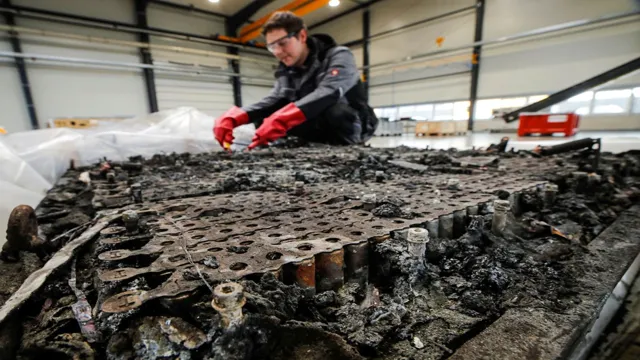
Current Battery Disposal Methods
The increasing use of electric cars is revolutionizing the automotive industry, but it is also creating some environmental challenges. One of the major issues is the disposal of electric car batteries, which can have a significant impact on the environment if not handled properly. Presently, some of the current battery disposal methods include recycling, landfill, and incineration.
However, these methods have their drawbacks. For instance, recycling requires a complex extraction process, which involves transporting used batteries to recycling centers, and may emit harmful substances during the process. On the other hand, the landfill is not a sustainable option as it often leads to contamination of the soil and groundwater systems, while incineration releases toxic gases that can harm the environment and human health.
Despite the challenges associated with electric car battery disposal, there is a need for the industry to adopt sustainable battery disposal methods to minimize the environmental impact and promote a cleaner future.
Landfill Contribution to Greenhouse Gases
When we throw away batteries, we often don’t think about where they end up. Unfortunately, the vast majority of batteries find their way to landfills, and this can contribute to the emission of greenhouse gases. When batteries are buried with other waste, they can begin to break down and release harmful chemicals.
One of the most significant problems with battery disposal is the release of heavy metals like lead, cadmium, and mercury into the environment. These metals can leach into the soil and water, causing damage to ecosystems and posing a risk to human health. It’s important to take proper steps to dispose of batteries correctly.
Many communities offer recycling programs that can safely and responsibly manage battery disposal. By utilizing these programs, we can protect the environment and eliminate the risks associated with traditional battery disposal methods.
Waste Recycling and Metal Recovery
When it comes to disposing of batteries, there are a few current methods that are being used. The most common method is simply throwing them away in the garbage, which is not only harmful to the environment but also wastes valuable materials that could be recycled. Another method is utilizing a battery recycling program that collects batteries and separates their components for proper disposal and potential reuse.
However, these programs are not widely available, and many people are not aware of them. As a result, a large amount of batteries still end up in landfills, where they can potentially leak harmful chemicals into the soil and water supply. To address this issue, it’s important to raise awareness about the importance of properly disposing of batteries and to promote wider access to battery recycling programs.
By doing so, we can reduce waste, recover valuable metals, and protect the environment for future generations.
Future Battery Disposal Possibilities
Electric car battery disposal has become a growing concern due to the environmental impact caused by their improper disposal. With the increasing use of electric cars, it is necessary to find safe and sustainable ways to dispose of these batteries. Future battery disposal possibilities include recycling the batteries to recover precious metals, repurposing them for energy storage for homes, or even repurposing them for use in electric boats and other forms of transportation.
There are also emerging technologies aimed at finding innovative solutions to the problem of battery disposal, such as using bacteria to break down the materials and recover valuable components. As the technology continues to evolve, it is important to prioritize the safe and environmentally friendly disposal of electric car batteries to minimize the impact on our planet for future generations.
Innovative Recycling Techniques
As we move towards a more sustainable future, the need for innovative recycling techniques becomes increasingly important. One area that has seen significant progress in this regard is battery disposal. Traditional methods of disposing of batteries can be harmful to the environment because they contain toxic chemicals that can leach into the soil and water.
However, researchers have been working on developing new techniques for battery disposal that are more environmentally friendly. One promising method involves using bacteria to break down the chemical components of batteries, which can then be reused. This not only means less waste and pollution but also opens up new possibilities for creating a circular economy in which waste is minimized, and resources are conserved.
With further research and development, we may see a future where batteries are not just a source of power, but also a valuable material that can be reused indefinitely.
Battery Reuse and Second Life
As the demand for electric vehicles increases, so does the need for sustainable ways to dispose of their batteries. One possible solution is battery reuse and second life. When electric vehicle batteries reach the end of their life, they may still have up to 70% of their capacity remaining.
This means that they can be used in other applications before being recycled. For example, used batteries can be repurposed for stationary energy storage in homes or businesses. This not only gives the batteries a second life but also reduces the need for new batteries to be produced.
While battery reuse and second life is still in its early stages, it has the potential to significantly reduce the environmental impact of electric vehicles and their batteries. By finding ways to reuse and repurpose batteries, we can create a more sustainable future for all.
Conclusion: Impact Reduction and Responsibility
In conclusion, the environmental impact of electric car battery disposal should not be overlooked. While the electric vehicle industry is helping to reduce emissions and combat climate change, we must consider the full lifecycle of the batteries used in these cars. Proper disposal and recycling methods are crucial for minimizing negative environmental impacts and ensuring the longevity of our planet.
So, let’s be “positive” about finding sustainable solutions for electric car battery disposal and continue driving towards a cleaner future!”
FAQs
What is the environmental impact of disposing of electric car batteries?
The environmental impact of disposing of electric car batteries can be significant due to the toxic chemicals and heavy metals they contain, such as lead and lithium. If not properly disposed of, the batteries can contaminate soil and water sources.
How are electric car batteries typically disposed of?
Electric car batteries can be recycled, with components such as metals, plastics, and electrolytes being extracted and reused. However, if not recycled, they may end up in landfills or incinerated, which can have negative environmental impacts.
What steps can be taken to reduce the environmental impact of electric car battery disposal?
To reduce the environmental impact of electric car battery disposal, it is important to recycle them properly. Governments and industries can establish and enforce regulations for proper disposal and incentivize recycling programs. Additionally, advancements in battery technology and research into alternative materials can help decrease the amount of toxic chemicals needed in batteries.
Are there any health risks associated with the disposal of electric car batteries?
Improper disposal of electric car batteries can result in health risks due to exposure to harmful chemicals and heavy metals. It is important to handle and dispose of batteries properly to minimize the risk of these health hazards.
